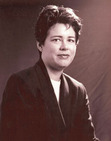Make 'em dance!
Scenes are dramatic units, structured to advance the story from one event to the next. But before you start planning–much less writing–your scenes, you need to select them.
It's important to choose only the most important issues of your storyline for development into scenes. So when you're planning and plotting, it's useful to list all the critical events that would logically span your story from start to finish.
Thinking about this task can become overwhelming. To avoid overloading your circuits, take a notebook and just jot down events as they occur to you. Don't try to censor or edit in this first pass; let the ideas flow.
Once you've got a list, put on your critical hat and start evaluating.
Pretend you're a casting director and these pieces of story are auditioning for inclusion in your project. Make 'em dance! Make 'em sing! You've got to be tough here. You can't keep everything. Some have to be rejected and ejected.
That doesn't mean you're a weak writer. It doesn't mean the story you envision is going to be harmed or less than wonderful because something has to go. Keep the strongest and best; winnow out the chaff.
Remember what I posted previously about knowing your ending? Once again, that's going to help you decide and choose. What goes? What stays on the list? What's pertinent to your protagonist's objective? What's probably going to pull the plotline off track?
Maybe you discard so much that you have little left. Okay, back to the drawing board. Think up new material. Chances are it will be better anyway.
Cut again.
Each time you rework your list of plot events, make sure anything new passes the pertinence test. Does it help the plot? Does it advance the story toward the ending you want? Or does it distract?
Once you've made your choices and are satisfied, you'll start a new round of elimination.
How many of your listed events are going to be developed into scenes of conflict?
Well, duh! All of them, you might say.
Nope.
There's no hard rule about how many events go into a story, but a loose guideline would be as follows:
Short stories need 3-5 events. Novels need about 20.
By events, I don't mean aimless mundane things such as Bo woke up and examined his navel lint to see if more had accumulated during the night.
Plot events should be actions or clashes or encounters centered around conflict between the protagonist and antagonist. They should relate to the story goal or the story's objective. They should be events with strong consequences for your main character, not incidentals such as It rained during the night.
Unless your story is about a man's desperate attempt to save his 150-year-old home from being flooded by the rising river, an evening downpour isn't relevant.
But let's say you're writing about a Russian girl held in white slavery in the US. You know she's going to escape her captors. You know she's going to be brutally beaten and left for dead. You know she's going to end up in a morgue. You know you want to give the medical examiner quite a shock when this girl wakes up on the slab.
Each of those events are focused, have consequences, and will advance the story.
So if you're thriller novelist Tess Gerritsen, and these events have made your finished list–as they do for her novel VANISHED–the next step is determining what order they'll occur in the manuscript.
Do you start with the beating? Or do you have the medical examiner start an autopsy, only to have the corpse open her eyes?
Not only do you want strong events, but you also have to think about the most effective order of presenting them to readers. What will create the best opening hook? What will top it? What will keep readers turning pages? What will build to the next hook?
Think it through.








C. Aubrey Hall's Blog
- C. Aubrey Hall's profile
- 7 followers



